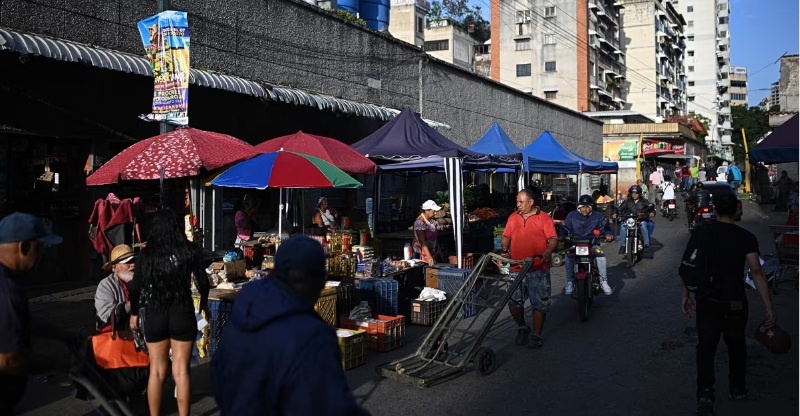For millions of Venezuelans, the pressing challenges of daily life overshadow the geopolitical tensions ignited by the deployment of US warships to the southern Caribbean in August. While the US government asserts that its mission is aimed at combating drug trafficking, Venezuelan authorities suspect it may be an attempt to destabilize President Nicolás Maduro’s regime. However, for citizens like Samuel Carreño, the immediate concern is the country’s collapsing economy rather than international disputes. Carreño, a 49-year-old informal worker from Petare, has faced a personal crisis that has disrupted his life. Since his 75-year-old mother, Tita Carreño, suffered a fractured femur in August, he has been unable to work, dedicating his time to her care. As an informal laborer living paycheck to paycheck, a medical emergency poses an insurmountable financial burden. ‘The hospital demanded $3,000 for the surgery,’ Carreño explained, a sum his family struggled to gather even after negotiating a reduced fee. Carreño’s daily struggles underscore the nation’s crumbling infrastructure. He must heat water on a gas stove for his bedridden mother because their home, shared by five people, lacks a water heater. Additionally, running water is rationed, available only three days a week, forcing him to store dozens of buckets to meet their needs. This personal hardship is set against a backdrop of severe economic instability. In the two months following the US warship deployment, the Venezuelan bolivar lost 50% of its value against the US dollar, according to the Central Bank. For many Venezuelans, the fear of political persecution and perpetual economic decline outweighs concerns about external conflict. As the aunt of a political detainee, held without charges since September 2023, remarked when asked if she feared a military overthrow: ‘Afraid of what? Wars eventually end, but my fear is being trapped here forever, abandoned by our allies in this struggle.’
